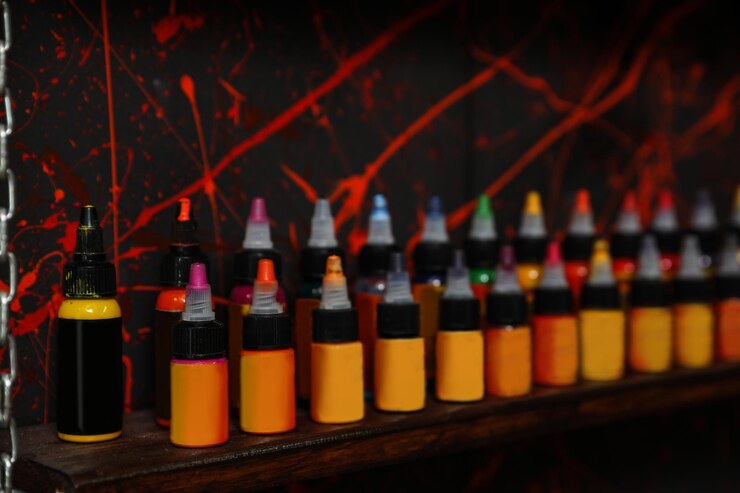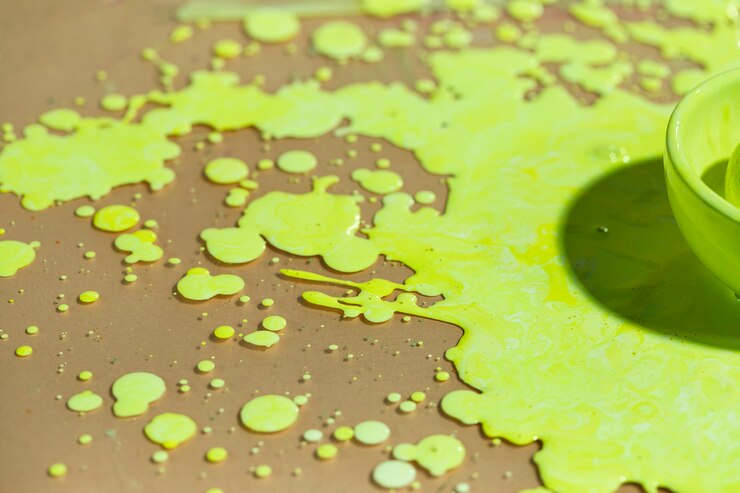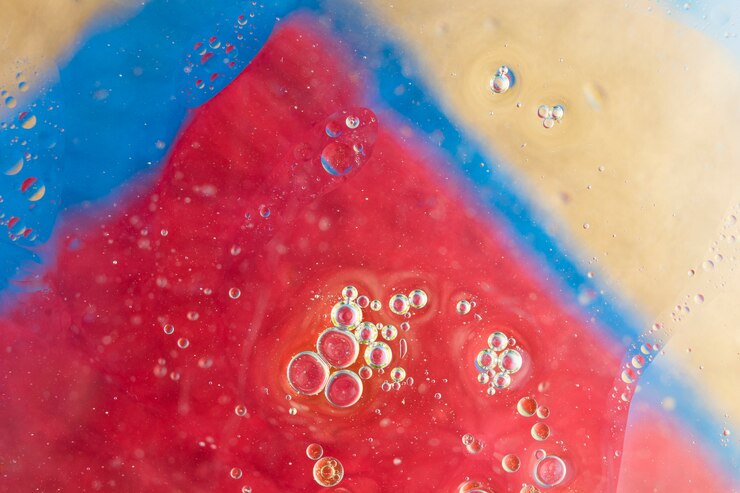10Nov
The Role of Ethanol in Printing Ink: Enhancing Quality and Efficiency

Ethanol, a common form of alcohol, has become an essential ingredient in printing inks due to its unique properties that enhance the quality and efficiency of print applications. From newspapers and magazines to packaging and promotional materials, ethanol-based inks are widely used across industries for their quick drying time, stability, and eco-friendly qualities. In this blog, we’ll dive into the role of ethanol in printing inks, exploring how it contributes to better printing outcomes, environmental benefits, and why it’s become an industry staple.
Why Ethanol is Used in Printing Inks
Ethanol offers several advantages as a component in printing inks, which make it especially suitable for high-speed printing and diverse surfaces. Here’s why ethanol is widely chosen as a solvent in printing inks:
1.Quick Drying Properties
One of ethanol’s primary benefits is its rapid evaporation rate, which helps printing inks dry quickly. This is particularly important in high-speed printing processes, where inks need to set rapidly to prevent smudging and sticking between prints. Ethanol’s quick-drying nature increases efficiency and ensures crisp, sharp prints.

2.Solvent for Pigment and Resin
Ethanol acts as an effective solvent for dissolving pigments and resins in ink. By evenly dispersing these ingredients, ethanol ensures a smooth, consistent application of ink that can adhere well to a variety of surfaces. This results in a cleaner print with vibrant colors and sharp details.

3.Reduced Environmental Impact
Ethanol is derived from renewable sources like corn and sugarcane, making it a more eco-friendly alternative to traditional petroleum-based solvents. As industries aim to reduce their environmental impact, ethanol-based inks offer a more sustainable option for printing.
4.Improved Adhesion
Ethanol helps inks adhere more effectively to non-porous surfaces, such as plastics, metals, and glass. This makes ethanol-based inks ideal for printing on packaging materials and other specialty surfaces where adhesion can be challenging.
5.Low Odor
Compared to other volatile organic compounds (VOCs) used in inks, ethanol has a relatively low odor. This makes it more user-friendly in printing facilities, contributing to a better work environment for operators and reducing the need for excessive ventilation.
Types of Printing Inks Using Ethanol
Ethanol is used in various types of printing inks, each benefiting from its unique properties to improve print quality and production efficiency:
- Flexographic Inks: Flexography is a popular printing method used for packaging materials, labels, and newspapers. Ethanol-based inks are frequently used in flexographic printing because they dry quickly, allowing for rapid production speeds without compromising print clarity. Ethanol’s low viscosity also ensures that the ink flows smoothly, providing even coverage on various substrates.
- Gravure Inks: Gravure printing is often used for high-quality publications, packaging, and decorative printing. Ethanol-based gravure inks help achieve fine detail and smooth gradients due to their ability to dissolve pigments effectively. This results in rich, vivid colors and sharp images, even on textured or non-porous surfaces.
- Inkjet Inks: Ethanol is a key ingredient in many inkjet inks, particularly those designed for industrial printing. Ethanol’s rapid evaporation prevents smudging, allowing for clear, durable prints on paper, plastics, and other materials. This is essential in sectors such as packaging, where precise and reliable printing is required.
- Screen Printing Inks: Ethanol-based inks are also popular in screen printing, a versatile method used on textiles, glass, and plastics. Ethanol helps the ink adhere to a wide range of materials, ensuring durability and vibrant colors that withstand handling and environmental exposure.
Advantages of Ethanol-Based Printing Inks
Ethanol provides several benefits in printing inks, improving both the quality of the final product and the efficiency of the printing process. Here’s a closer look at the advantages:
- Enhanced Print Quality: Ethanol-based inks produce high-quality, vibrant prints. The ethanol allows pigments to disperse evenly, which helps achieve richer colors and crisper images. This is particularly valuable in commercial printing, where visual impact is essential.
- Increased Production Speed: The quick-drying property of ethanol allows printing processes to run at faster speeds. Since the ink sets almost instantly, there’s less need for downtime between prints, increasing productivity and reducing production time.
- Versatility Across Materials: Ethanol-based inks can adhere to a wide range of materials, including paper, plastics, glass, and metals. This makes them ideal for applications in diverse industries, from packaging to promotional materials and beyond.
- Eco-Friendly Option: Ethanol can be sourced from renewable resources, which makes it more environmentally friendly than many petroleum-based solvents. Additionally, ethanol emits fewer VOCs, reducing air pollution and contributing to healthier, more sustainable production practices.
- Improved Safety and Working Conditions: Due to its relatively low odor and lower toxicity compared to other solvents, ethanol creates a safer work environment for operators. It also reduces the need for extensive ventilation systems, saving energy costs and improving overall air quality in printing facilities.
Environmental Impact and Sustainability of Ethanol in Printing Inks
As industries become more conscious of environmental impact, ethanol has gained attention as a renewable and biodegradable option. Here are some of the environmental benefits:
- Biodegradability: Ethanol is a biodegradable compound, which means it breaks down naturally in the environment. Unlike some other solvents, ethanol doesn’t contribute to long-term pollution, making it a cleaner choice for sustainable printing.
- Sourcing from Renewable Resources: Ethanol can be produced from plants such as corn and sugarcane, which are renewable sources. By choosing ethanol-based inks, companies can reduce their reliance on fossil fuels and help decrease their overall carbon footprint.
- Lower VOC Emissions: Ethanol-based inks emit fewer volatile organic compounds (VOCs) than many traditional printing solvents. This results in improved indoor air quality in printing facilities and contributes to lower emissions of pollutants, aligning with stricter environmental regulations in the printing industry.
- Waste Reduction: Because ethanol evaporates quickly and doesn’t leave a residue, it reduces the need for extensive cleaning in printing equipment. This minimizes the generation of waste and contributes to a more efficient, less resource-intensive printing process.
Potential Considerations and Challenges
While ethanol-based inks offer many benefits, there are some considerations to keep in mind:
- Flammability: Ethanol is a flammable substance, so safety precautions are essential in handling and storing ethanol-based inks. Printing facilities must follow strict fire safety protocols to minimize the risk associated with ethanol’s flammable nature.
- Cost of Renewable Sourcing: While ethanol is relatively inexpensive, producing bioethanol (ethanol from renewable sources) can sometimes be costlier than petroleum-based solvents. However, as demand for sustainable products grows, the production costs of bioethanol are gradually decreasing.
- Limited Adhesion on Certain Materials: Although ethanol-based inks adhere well to many surfaces, there may be specific materials, like certain plastics, where adhesion could be challenging. In such cases, blending ethanol with other compatible solvents can help achieve the desired results.
Conclusion
Ethanol’s role in printing inks is invaluable, bringing together quality, speed, and environmental benefits that make it an ideal choice for today’s printing industry. From flexographic inks used in packaging to high-quality gravure inks for magazines and posters, ethanol’s quick-drying, solvent, and eco-friendly properties are driving improvements in print production worldwide.
As companies strive to adopt more sustainable practices, ethanol-based inks provide a path forward, reducing environmental impact while enhancing the performance and versatility of print applications. With its renewable sourcing, safety profile, and efficiency-boosting properties, ethanol remains a cornerstone ingredient that’s helping to shape the future of the printing industry. Whether you’re flipping through a magazine, opening a package, or reading a label, ethanol is likely working behind the scenes, enhancing the quality and sustainability of the print.
Recent Posts
- Ethanol Screen Wash: A Winter Driving Essential
- Ethanol in Industrial Chemical Manufacturing: A Versatile Building Block for Innovation
- Ethanol as a Biofuel: Fueling the Future with Renewable Energy
- The Role of Ethanol as a Preserving Agent: Enhancing Shelf Life and Safety
- Ethanol in Paints and Varnishes: Enhancing Performance and Sustainability